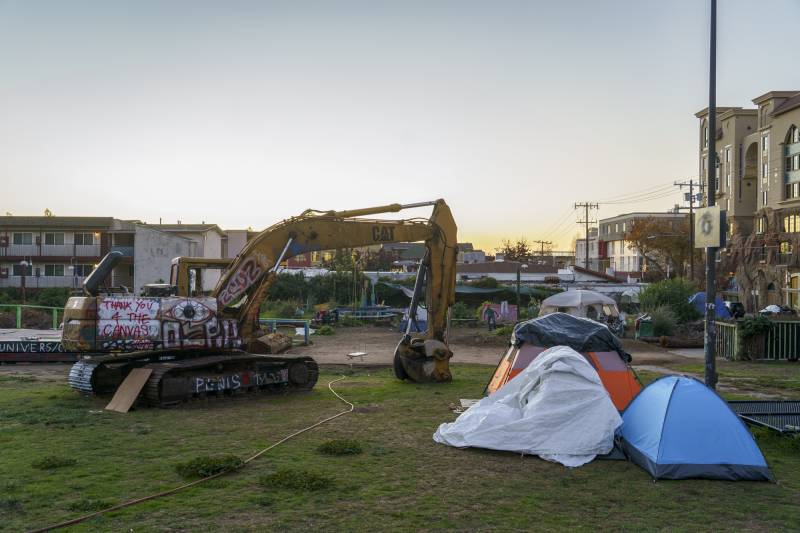This story was first published Aug. 30 and updated Friday, Sept. 8 at 3:45 p.m.
Gov. Gavin Newsom signed a bill this week aimed at clearing the way for construction of a controversial UC Berkeley student housing project in Berkeley’s historic People’s Park.
AB 1307, which takes effect immediately, amends California’s sweeping Environmental Quality Act (CEQA) by no longer requiring housing developers to first study potential noise levels generated by future tenants.
“California will not allow NIMBYism to take hold, blocking critically needed housing for years and even decades,” Newsom said in a statement about the new law, which both houses of the state Legislature unanimously approved last month.
The bill, introduced by Assemblymember Buffy Wicks (D-Oakland), whose district includes Berkeley, also eliminates the need for universities to prepare an environmental impact report that considers alternative housing sites for residential or mixed-use housing projects.
The law makes it clear that “people are not pollution,” Wicks said in a statement.
Wicks authored the legislation after an appeals court in February blocked the university from breaking ground on the project, ruling that it had failed to study potential noise issues and consider alternative sites. The state Supreme Court in May agreed to hear the case and will make the final ruling on whether the university can resume construction.
The controversial $312 million project would create sorely needed housing for some 1,100 UC Berkeley students. A separate facility would also house roughly 125 of the unhoused people that currently live on the 2.8-acre site south of campus that is owned by the university.
Newsom filed an amicus brief in April urging the state Supreme Court to allow UC Berkeley to continue with the housing project.
A UC Berkeley spokesperson said the university will ask the Supreme Court to consider the new law in its ruling.
“The campus will resume construction of the People’s Park project when the lawsuit is resolved and hopes that the new law will substantially hasten the resolution of the lawsuit,” UC spokesperson Dan Mogulof said in a statement.
Last month, Berkeley Mayor Jesse Arreguín called the passage of the bill a big win.
“This is a victory for affordable housing and that means it’s a victory in our ongoing efforts to tackle homelessness,” he said in a press release on Aug. 28. “These laws were designed to protect the environment, but they’re most often used to stop dense, infill projects which add affordable housing while reducing sprawl and pollution. These are the types of projects which, at scale, help fight the housing crisis which has been a leading cause of homelessness.”

